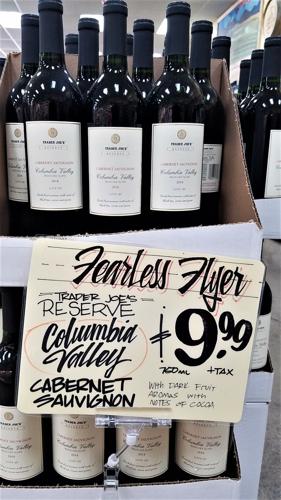Using the axiom that ‘knowledge is power’ I thought it might be interesting to explore wine purchasing strategies. Over the next few months, I will be publishing a series on tips for buying wine in various retail settings including grocery stores, Total Wine, Costco and online. The one caveat that remains operative during any conversation on purchasing wine is that no one should tell you what to buy. While I encourage people to occasionally venture out of their comfort zone, it’s not my role to tell anyone how much they should spend or what wine they should be drinking.
Before I dive into shopping strategies, I thought it worthwhile to discuss a trend within the retail environment as it is active within most corporate stores that sell wine: the growth of the private label wine, also known as house brands. Basically, a private label is a wine that is sourced from a wine producer for a specific retailer. The corporation contracts various wineries to produce specific varietals or blends and this wine is bottled and labeled using the retailer’s brand. These wines are then sold exclusively at the retailer’s stores.
Everyone is familiar with Trader Joe’s - Charles Shaw and VinTJ’s brands or Costco’s - Kirkland wines, but did you know that other national chains in the area have their own house wine brands. A few examples include: Albertson/Safeway (Creamery Kalyana, Signature Reserve), Fry’s (Acronym, Parker’s Estate), Whole Food’s (Animist, Criterion, Songbird Cellars), Target (California Roots, The Collection) and Total Wine (Cloudbreak, Muirwood, Big Six, Witching Hour). Private label wines now account for roughly ten percent of domestic wine sales in the United States and in the large retail chains almost 17 percent of total wine sales come from these private label wines. The percentages are significantly greater in Europe and the UK, and the growth of private label wines is expected to continue here in the US.
Wines for these private label brands are produced by a broad variety of players; some well-known like Jackson Family Wines and Owen Roe, others not-so-much, such as WX Brands and Bronco Wine Co. Winemakers benefit from private label deals in that they have a ready-made clientele, who have contracted to buy in volume. Additionally, the wine producer is spared the considerable expenses of marketing and promotion.
The advantage to retailers is primarily in the profit margin. Independently branded wines provide a margin of around twenty-five percent, while house brands can deliver a fifty percent profit margin. Corporate grocery chains can also exercise a great deal of control over their private label products, establishing the price structure, marketing and product placement, as well as tailoring the selections to developing trends in consumer interest.
For the consumer, there are several pros and cons. On the plus side, private label wines can be a good choice for shoppers who place emphasis on value. These bottles tend to be bulk wines, made in huge quantities and on the low end of the cost spectrum. Additionally, the corporation’s wine buyers have a great deal of pull with the producers and will insist on the highest quality product that can be achieved for the contract price. For me, two factors weigh heavily on the other side of the balance. The first being transparency; in most instances you cannot determine the producer, the specifics about the vineyards or the production processes. Unless the wine is labeled with a recognized store brand the consumer has no way of knowing about the direct affiliation between the chain store and the wine producer. The back labels are usually rich in marketing puffery while thin on facts and Internet research is often an unproductive exercise. Second is consistency: year to year, corporate chains are under no obligation to purchase wine from the same producers. This vintage’s XYZ California Merlot may be made by a completely different producer, using grapes from a different area than last year’s XYZ.
My experience with private label wines has ranged from so-so to exceptional. The most recent vintage of Kirkland Chianti Classico Riserva is crazy good for the price. Safeway’s ‘Signature Reserve’ Napa Valley Cabernet Sauvignon was well balanced, but a bit pricy for what it delivers and TW & More’s Muirwood Pinot Noir was a disappointment. This being said, I suggest that consumer’s at least give some of these house wines a try. It’s akin to buying store brand peanut butter or pasta in that you will probably save a few dollars and possibly discover a new favorite.
Next month I’ll tackle the (purple) elephant in the room. Wine shopping at Total Wine and More.
Saluté.
Tom Oetinger holds an advanced certification in wine & spirits from the WSET in London, England. He is available to assist you with your wine events or answer your wine questions. Tom also offers a free email service, recommending high quality, good value wines available locally. Contact / subscribe at tjo1913@gmail.com.




